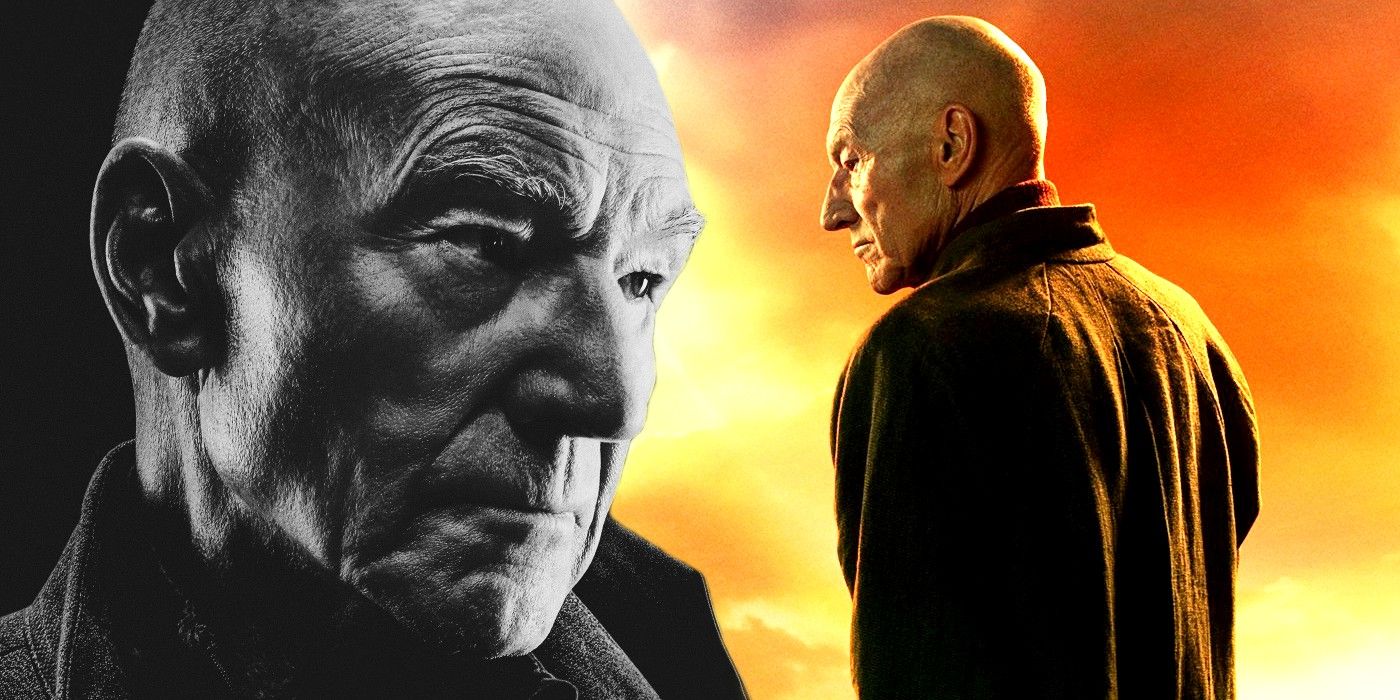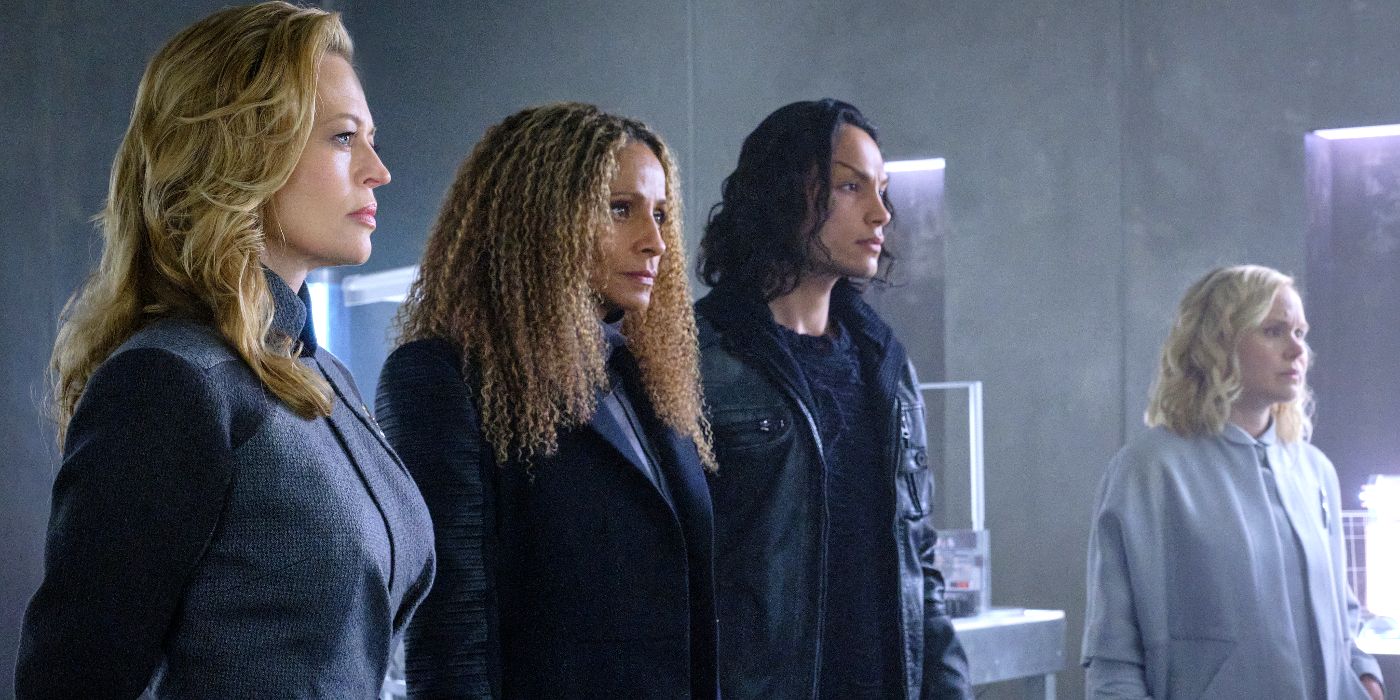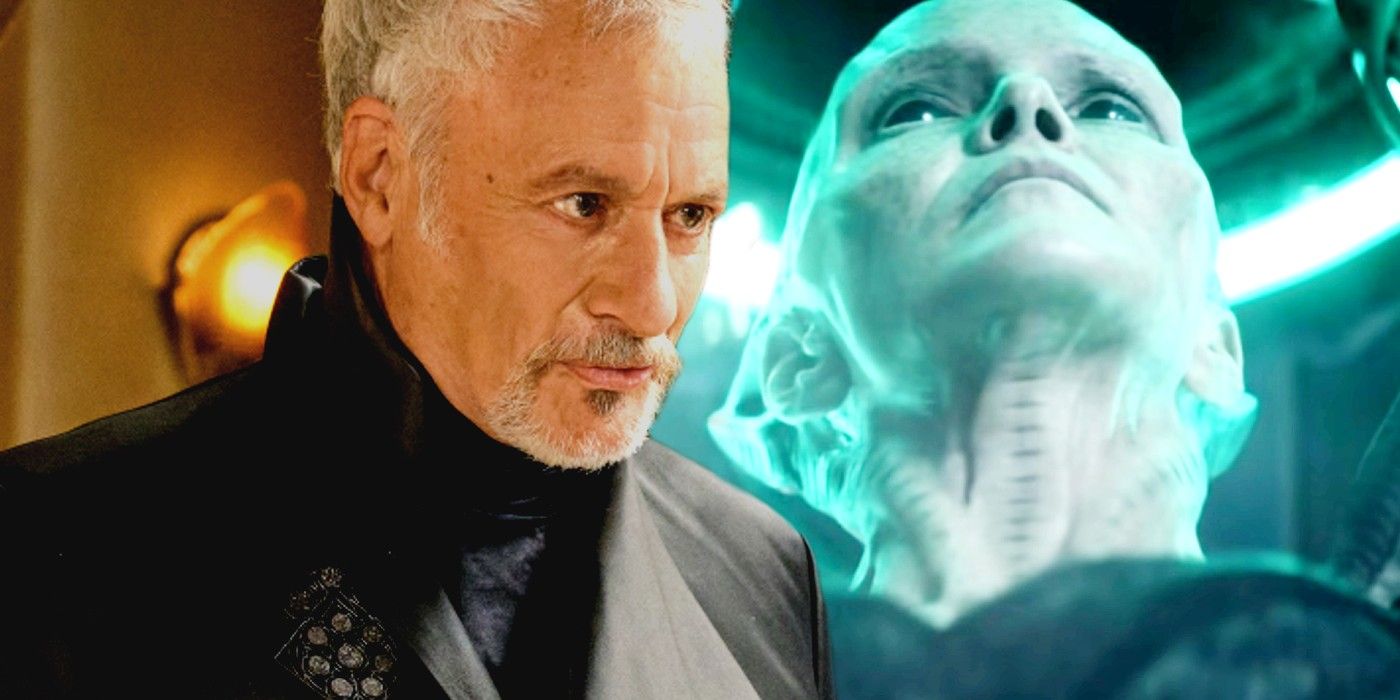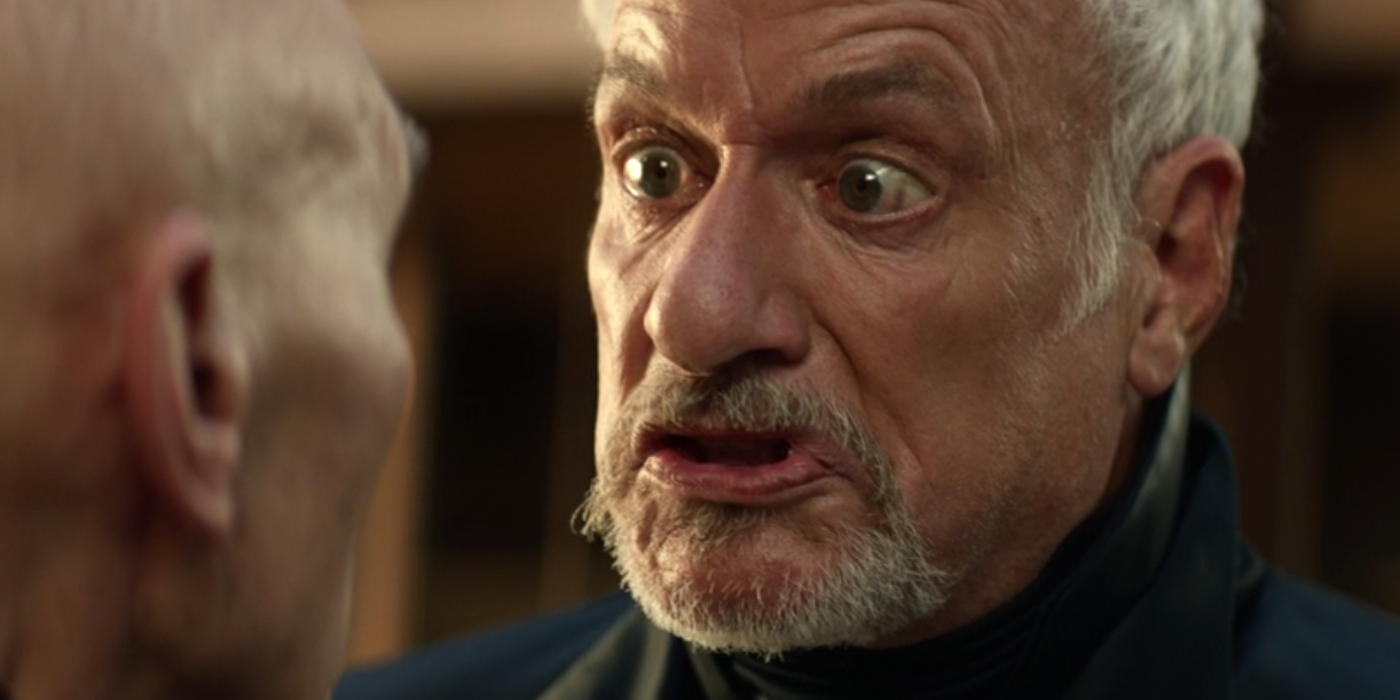Star Trek: Picard season 2 improves hugely upon season 1, boldly going where Jean-Luc's solo run hasn't gone before. Premiering in the good part of 2020, Star Trek: Picard finally brought Patrick Stewart back to Starfleet, but while reviews proved largely positive, audiences displayed a more diverse spectrum of reactions. That's pretty much par for the course with modern day Star Trek on Paramount+, but Picard maintained course regardless. His solo series is now confirmed for a total of 3 seasons, with the second currently airing, and the third expected sometime in 2023.
Jean-Luc's divisive comeback actually landed him in familiar territory. Star Trek: The Next Generation spent an entire two seasons finding its feet before coming into its own in seasons 3 and beyond. For a 96-year-old Jean-Luc to be "finding his feet" again might seem illogical, but just like the captain's 1987 maiden voyage on Enterprise-D, Star Trek: Picard season 1 teased a potential it never quite delivered upon.
Mirroring Star Trek: The Next Generation once again, Star Trek: Picard has ironed out most of those lingering foibles. Whether you loved season 1 or were angrier than a constipated Klingon, it's difficult not to see Star Trek: Picard season 2 as a wholesale improvement. From punchier characterization to deployment of fan service, here's how Jean-Luc Picard set phasers to fun...
Picard Season 2 Borrowed Star Trek: Discovery's Season 3 Trick
Developing new stories that stand upon 60 years of established canon is a thankless task. On one hand, there's plenty of preexisting material to draw from; on the other, narratives are limited by a not-entirely-coherent web of continuity. Star Trek: Picard season 1 may have sat within a relatively untouched area of fictional history, but the looming ghost of Star Trek canon was never far behind. Installing the Zhat Vash as a secret Romulan cabal embedded within Starfleet marked Star Trek: Picard's biggest deviation, completely rewriting the audience's Romulan understanding, and requiring historical wiggle room at the Tal Shiar's expense. Star Trek: Picard then had to marry up with events from J.J. Abrams' 2009 movie reboot, all while redefining the Federation as a synth-phobic society that had made Jean-Luc a social pariah.
Star Trek: Discovery is all too familiar with walking that canonical tightrope. After treading a delicate line for two seasons, enough was enough, and Star Trek: Discovery season 3 relocated to the far future, centuries ahead of anything audiences knew. That decision has proven hugely beneficial, relinquishing Captain Burnham and her crew of their franchise baggage, and liberating their narratives... and Star Trek: Picard season 2 employs almost the same trick. By the end of episode 1, Q has created the completely new "Confederation" timeline, and to prevent that dystopia happening, Team Jean-Luc hop back to 2024, where the bulk of Star Trek: Picard season 2 has taken place thus far. Just like the Discovery's 32nd century getaway, time travel has significantly shrunk the continuity rule book Star Trek: Picard must follow, and that freedom to explore without fear of contradiction can be felt throughout every episode.
Picard Isn't (Always) The Star Of His Star Trek Show In Season 2
Star Trek: Picard without Patrick Stewart's Jean-Luc Picard is comparable to pizza without the toppings. Just as a doughy base needs cheese, tomato and anything-but-pineapple to become truly delicious, Picard requires bright and vibrant supporting characters to let him shine. Star Trek: Picard season 1 was too much base, too little topping. The bare bones of interesting characters - Rios, Jurati, Raffi, Elnor - were introduced, but introductions is where Star Trek: Picard stopped. Excluding Jeri Ryan's Seven of Nine (with whom audiences were already intimately familiar), Picard's new crew were only afforded one or two notes to play.
Probably Star Trek: Picard season 2's biggest area of improvement is its use of characters who aren't bald, synthetic Starfleet admirals. For instance, relying on the Borg Queen and experiencing a timeline without implants brings Seven's prejudice (and the prejudice held against her) to the fore. Losing Elnor stirs up maternal woes for Raffi, after Star Trek: Picard only touched upon those ideas in season 1, while Dr. Agnes Jurati as an unwilling protégé of the Borg Queen takes Alison Pill's journey on a deliciously dark detour. Where Rios was once La Sirena's glorified cab driver, he's now a fascinating Starfleet captain rapidly hurtling toward Kirk's Edith Keeler dilemma, and experiencing the kind of subjugation his native 24th century long grew out of.
Whereas Star Trek: Picard season 1's finale lazily paired those characters off romantically, season 2 takes the far more interesting route of showing those romances gone spectacularly wrong. Suddenly, Picard is playing Jerry Springer as he sits awkwardly between two bickering ex-couples. You have to feel sorry for Evan Evagora's Elnor, deprived the development his peers are enjoying by virtue of being killed, but for everyone else, the benefits are huge. Star Trek: Picard has evolved from a one-man show to a true ensemble.
Better Star Trek Fan Service Makes For Better Villains
Season 1 or season 2, Star Trek: Picard is a fan service show - no evasive maneuvers can get around that. Star Trek: Picard season 2, however, puts those moments to better use.
Jean-Luc Picard's 2020 return came laden with a mixed bag of callbacks and cameos, some of which veered toward the wrong end of Star Trek's fan service spectrum. Hugh came back just to get promptly killed off, and while Riker's big finale moment has you punching the air at first, the thrill of his miraculous last-minute magic bullet soon fades into an overwhelming sense of convenience. Star Trek: Picard season 2 has avoided those pitfalls thus far, offering two distinct flavors of fan service ice cream. There are the inconsequential Easter eggs, such as episode 4's excellent "punk on the bus" riff. And then you get the meaningful guest spots, with Guinan proving season 2's most prominent import from Star Trek: The Next Generation. Whereas Riker's return fell apart if you thought about it too deeply and Hugh's ended prematurely, bookend-ing Picard's season 2 journey with older and younger versions of Guinan is the perfect framing device for both a time travel story, and Picard's "final frontier" toward romance.
Season 2's commitment to bringing back fan favorite characters in meaningful, plot-centric roles has allowed Star Trek: Picard to upgrade its villains. Romulan siblings Narek and Narissa were perfectly serviceable as season 1 antagonists, but considering they were completely new to Star Trek, neither felt especially original. John de Lancie's return as Q and Annie Wersching's Borg Queen are a vast improvement. Rather than creating new characters who retread the past, Star Trek: Picard season 2 puts familiar characters in new positions - i.e. Q seemingly dying, and the Borg Queen made vulnerable.
Star Trek: Picard Season 2's Mystery Is Better Paced
Starting a fresh chapter, Star Trek: Picard season 2 softly reboots from the end of season 1's finale, beginning a whole new unrelated mystery. Previously, Picard uncovered a Romulan conspiracy to destroy synthetic life on the basis of a prophecized summoning that'll bring forth a mechanical galaxy-ending threat. In season 2, Picard must discover how Q altered history in 2024 and put things right.
From those descriptions alone, it's already clear Star Trek: Picard season 2 is benefiting from the more streamlined concept (which is odd, what with all the time travel hi-jinks). Whereas the Zhat Vash conspiracy and unseen synthetic enemy bordered on convoluted, season 2's "Back To The Future meets The Voyage Home" vibe creates a clearer central narrative, without compromising on mystery, intrigue, or cleverness. Perhaps because of the cluttered concept, slow pacing ranked high on Star Trek: Picard's list of season 1 criticisms, but season 2 has plainly kicked into a higher warp. Episode 1 sets the stage, episode 2 is spent exploring the Confederation, then it's factor 10 straight to 2024, where each installment has delivered substantial answers sans filler - Guinan, The Watcher's identity, Renée Picard, Adam Soong, all within three episodes. 2024 may be a rough time to be alive in Star Trek's continuity... but it's also a far more entertaining watch.
Star Trek: Picard continues Thursdays on Paramount+.





